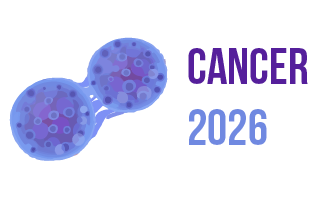4th International Conference on
Innovations and Advances in Cancer Research and Treatment
October 08-09, 2026 | Tokyo, Japan

Cancer 2026

Dana-Farber Cancer Institute, USA
Abstract:
Anemia is a predominant comorbidity in blood cancer patients, such as acute myeloid leukemia (AML) and myelodysplastic syndrome (MDS). On the other hand, telomere shortening is a characteristic feature of aging individuals and patients diagnosed with idiopathic pulmonary fibrosis (IPF) and MDS. Although telomerase activity tightly controls telomere length homeostasis to prevent malignancies and other disorders, the upstream regulation of telomerase holoenzyme subunits remains largely elusive. Also, the intriguing association between telomere shortening and anemia is poorly understood. We have previously reported that RIOK2 (right open reading frame kinase 2) functions as a master transcription factor in human blood cell development1, and loss of RIOK2 impairs erythropoiesis, thus causing anemia1,2. RIOK2’s expression significantly correlates with its targets (GATA1, KLF1, RUNX3) in MDS and AML patient-derived cells1. Here, we show that RIOK2 transcriptionally regulates key telomerase subunits (TriC and Dyskerin complexes) to maintain telomere biogenesis in various cell types using gene expression analyses, fluorescence in situ hybridization, and chromatin immunoprecipitation3. Interestingly, RIOK2’s expression is downregulated in aged individuals and IPF patients, and its mRNA levels significantly correlate with TriC and Dyskerin complex subunits in MDS and IPF patients as well as aging individuals. Importantly, ectopic expression of RIOK2 significantly alleviates telomere shortening in primary lung fibroblasts isolated from IPF patients3. Collectively, our findings demonstrate that RIOK2 governs both telomere biogenesis and blood cell development, highlighting it as an unprecedented connecting link between anemia and telomere shortening. Thus, RIOK2-driven transcriptional programs have potential therapeutic implications in aging, IPF and blood cancers.
Biography:
Shrestha Ghosh completed her PhD from The University of Hong Kong in 2017 and joined Dana-Farber Cancer Institute (DFCI)/Harvard Medical School (HMS), Boston for postdoctoral studies in 2018. She is now an Instructor at DFCI/HMS. She is a gold medalist in her undergraduate studies and received the best doctoral thesis award in medicine faculty of HKU in 2018. Her thesis was published as a book by Elsevier in 2019. She has now co-founded a start-up to find novel therapeutics in blood-related disorders. She has published several papers in reputed journals, such as Nature Immunology, Nature Communications, Cell Metabolism, Cell Reports.
